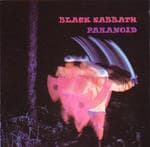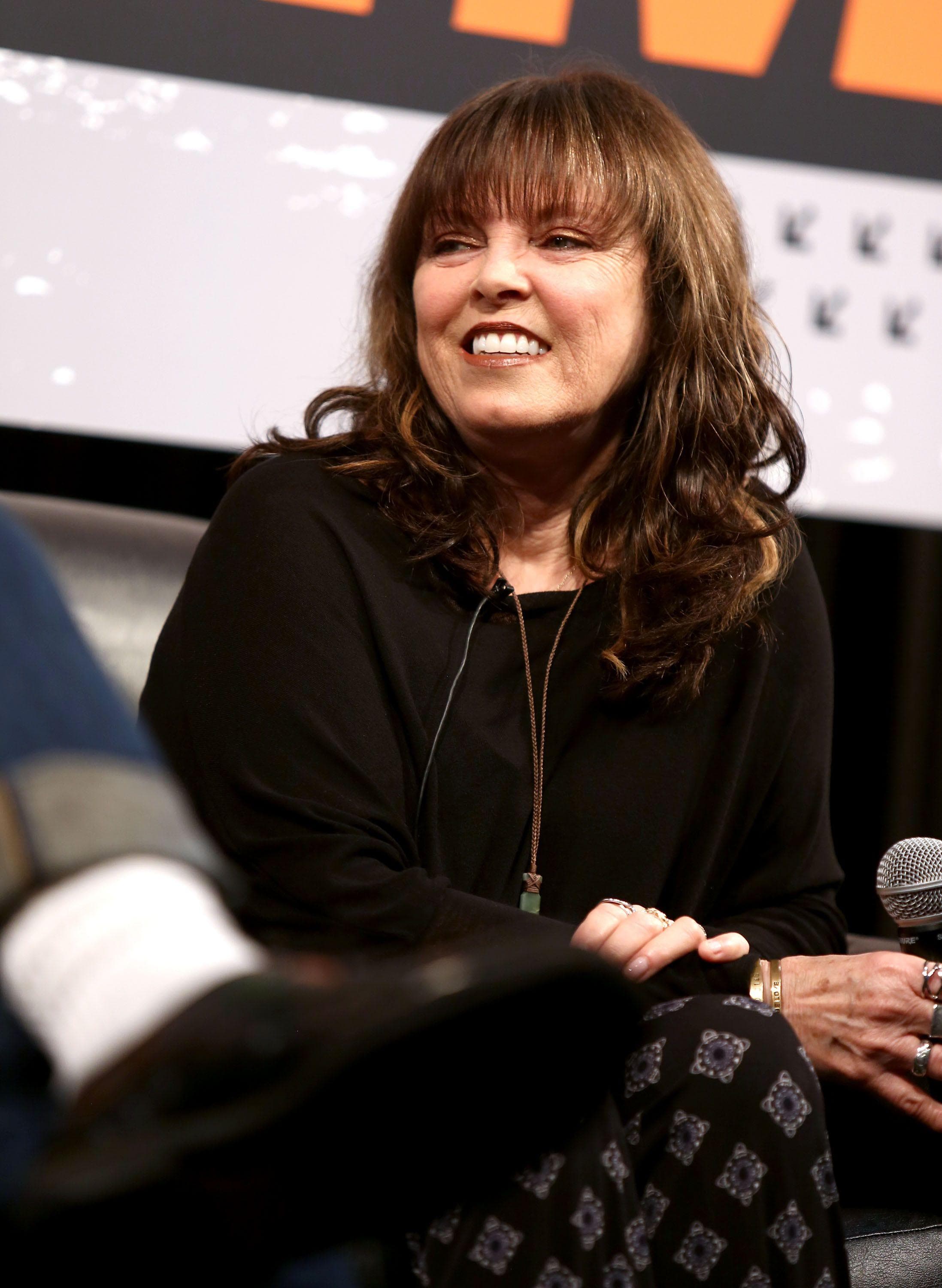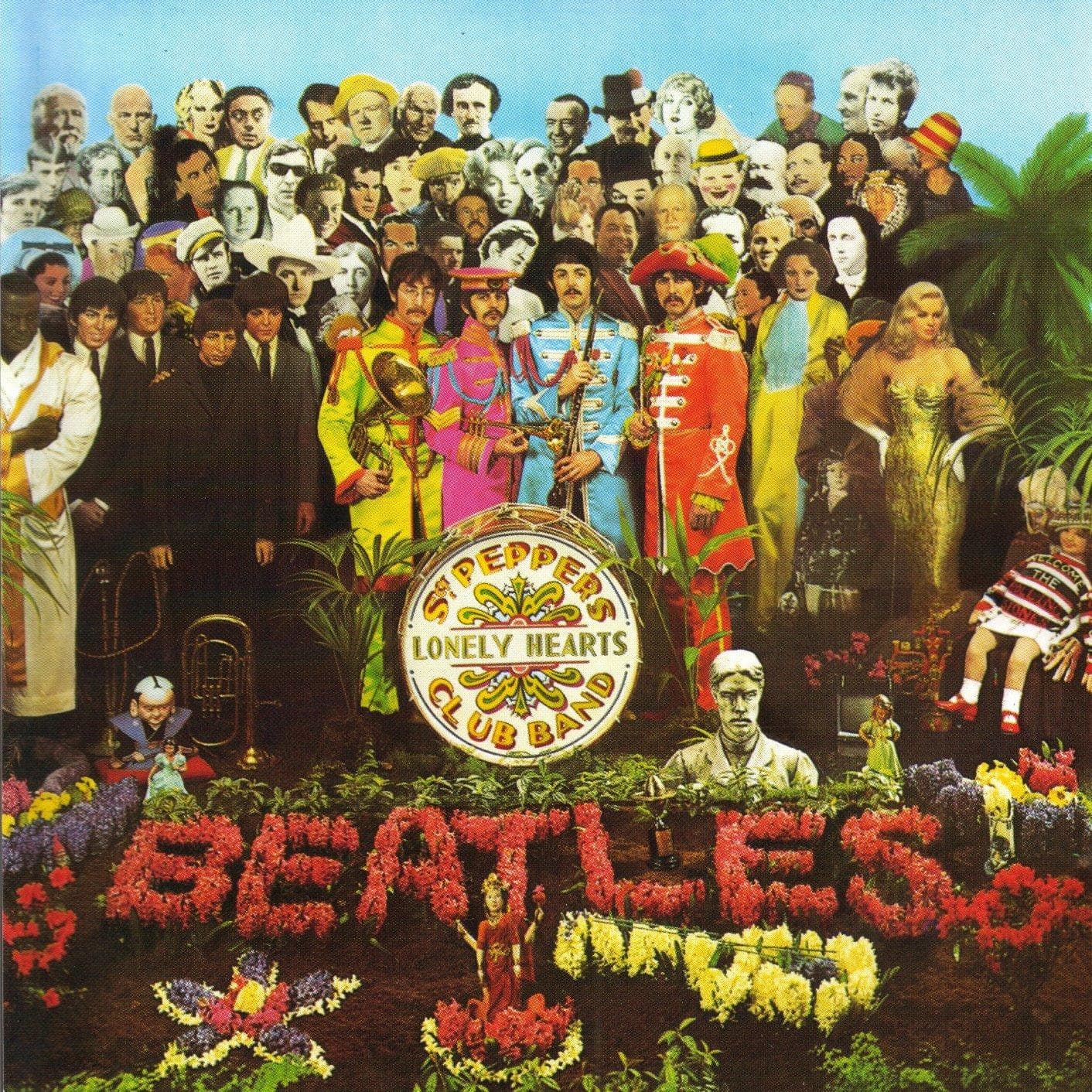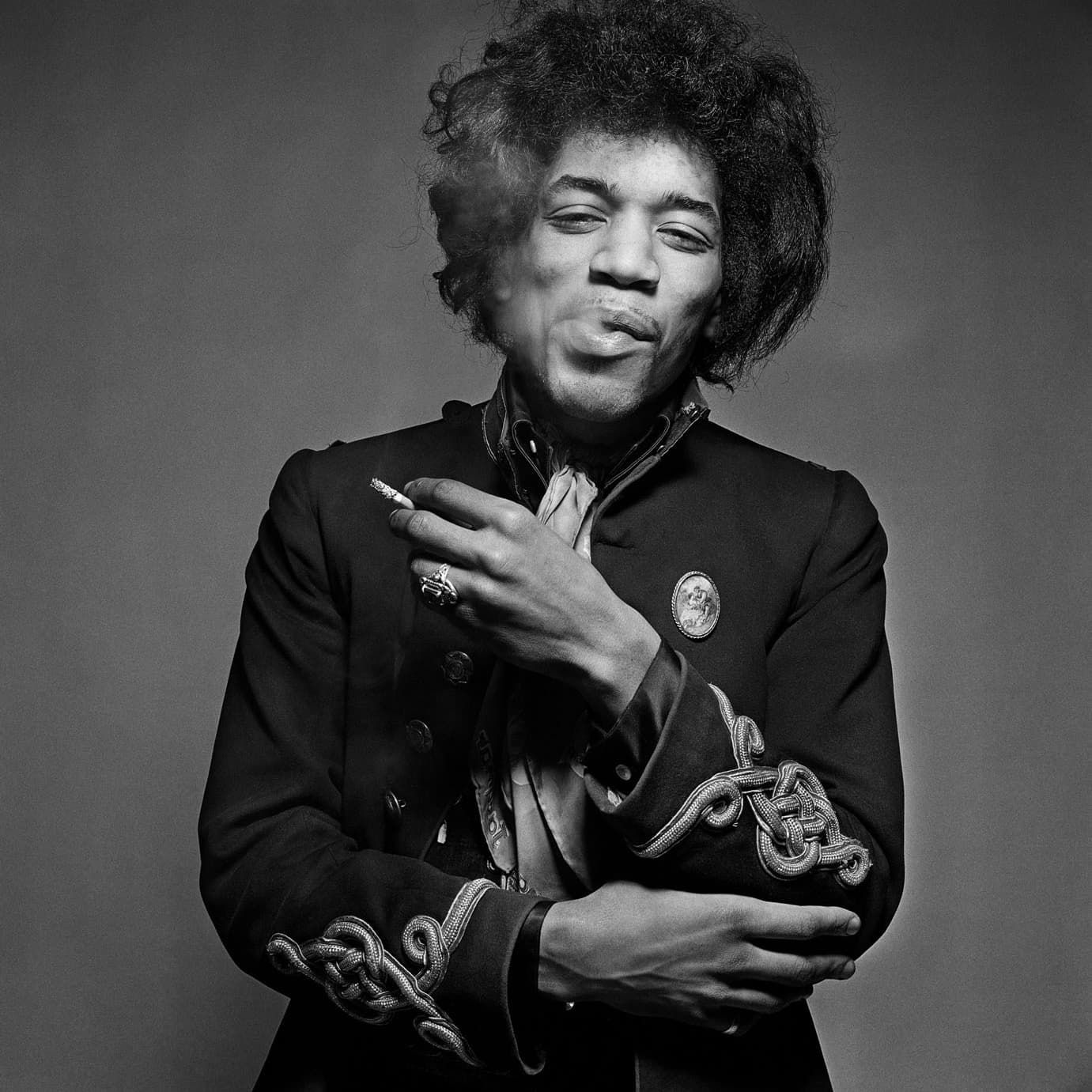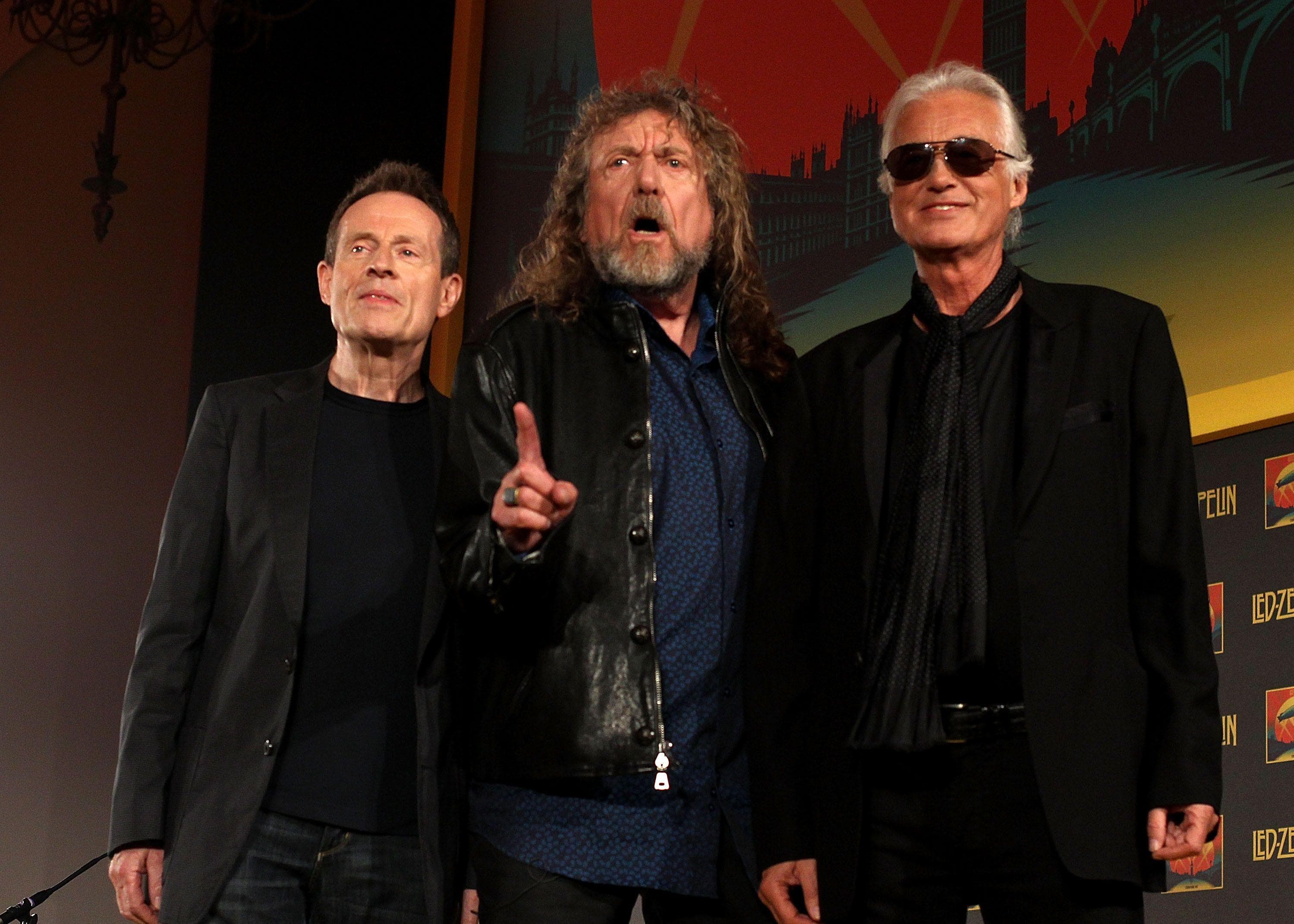-
(#1) Pink Floyd
- Rock music, Space rock, Experimental rock, Acid rock, Progressive rock, Art rock, Avant-garde music, Avant-garde, Psychedelic rock, Hard rock, Psychedelic music
Lead Singer Change: Syd Barrett to David Gilmour and Roger Waters
Syd Barrett was the original vocalist for Pink Floyd, but his erratic behavior, drug use, and alcoholism got him kicked out in 1968. That's when guitarist David Gilmour and bassist Roger Waters started switching off on lead vocals. The band's subsequent albums were hugely successful—Pink Floyd is now one of the best-selling bands of all time. -
(#2) Fleetwood Mac
- Blues-rock, Pop music, Rock music, Instrumental rock, Pop rock, Soft rock, Blues, Hard rock
Lead Singer Change: Bob Welch to Stevie Nicks/Lindsey Buckingham/Christine McVie
Fleetwood Mac went through more than its fair share of lineup changes throughout the '60s and '70s. In 1971, Bob Welch joined the band as a vocalist and guitarist, but the era of Welch was short-lived. When Lindsey Buckingham was asked to join in '74, he made sure his girlfriend (Stevie Nicks) could come along for the ride—and that's when Fleetwood Mac started seeing mainstream success. -
(#3) Iron Maiden
- New Wave of British Heavy Metal, Heavy metal, Hard rock
Lead Singer Change: Paul Di'Anno to Bruce Dickinson
British metal band Iron Maiden changed its lineup on an almost monthly basis until singer Paul Di'Anno joined the band in 1978 and sang on Maiden's first two studio albums. He was kicked out because of his drug abuse in 1980. Bruce Dickinson joined the band in 1981 and brought Maiden its first number one album in the UK, The Number of the Beast. -
(#4) Genesis
- Rock music, Pop rock, Soft rock, Progressive rock, Art rock, Hard rock, Symphonic rock
Lead Singer Change: Peter Gabriel to Phil Collins
Peter Gabriel, the original lead vocalist of Genesis, seemed to care more about being a frontman than part of the band, which caused a lot of tension between him and the other band members until he quit in 1975. Drummer Phil Collins took over on vocals, and Genesis's first album without Gabriel was a huge commercial success. -
(#5) Audioslave
- Rock music, Grunge, Funk metal, Heavy metal, Post-grunge, Alternative rock, Funk rock, Alternative metal, Hard rock
Lead Singer Change: Zack de la Rocha to Chris Cornell
Audioslave used to be Rage Against the Machine, until vocalist Zack de la Rocha quit. The rest of the band members wanted to stay together, so they replaced de la Rocha with Chris Cornell and renamed themselves Audioslave. The battle of who is the better band has been raging ever since. -
(#6) Van Halen
- Glam metal, Rock music, Heavy metal, Hard rock
Lead Singer Change: David Lee Roth to Sammy Hagar
Van Halen nearly broke up in 1986, when singer David Lee Roth exited due to tensions in the band and a burgeoning solo career. Luckily, Sammy Hagar took the helm and helped Van Halen score four number-one albums over the next decade. -
(#7) Black Sabbath
- Doom metal, Blues-rock, Power metal, Heavy metal, Stoner rock, Progressive rock, Hard rock
Lead Singer Change: Ozzy Osbourne to Ronnie James Dio
Ozzy Osbourne will live on in pop culture memory as the crazy, bat-eating lead singer of Black Sabbath, but he actually left the band in 1979. Ronnie James Dio took over, but he was no Osbourne. Ozzy eventually rejoined in '97. -
(#8) AC/DC
- Blues-rock, Boogie rock, Rock music, Heavy metal, Rock and roll, Hard rock
Lead Singer Change: Bon Scott to Brian Johnson to Axl Rose
AC/DC shot to fame with Bon Scott's high-pitched squeal leading the band. But he died of a alcohol poisoning in 1980, prompting vocalist Brian Johnson to replace him. Johnson revitalized the band, but recently had a tough decision to make: go on tour and risk going completely deaf, or call it quits. He chose the latter, and the band has replaced him with Guns 'N' Roses lead singer Axl Rose. Only time will tell if fans support the switch... -
(#9) Judas Priest
- New Wave of British Heavy Metal, Thrash metal, Power metal, Heavy metal, Traditional heavy metal, Speed metal, Hard rock
Lead Singer Change: Rob Halford to Ripper Owens to Rob Halford
Who better to replace your lead singer than the singer of your tribute band? That's what happened when Judas Priest vocalist Rob Halford left the band in 1991—Ripper Owens, who had previously fronted a Judas Priest cover band, joined the real Judas Priest to mixed reviews. He held down the fort until Rob Halford eventually took over again in 2003. -
(#10) Bad Company
- Blues-rock, Hard rock
Lead Singer Change: Paul Rodgers to Brian Howe to Robert Hart to Paul Rodgers
The original Bad Company was a super group anchored by Paul Rodgers of the band Free. The group was wildly successful, but by the end of the 1970s, they were also burned out on big stadium shows and took a break.
In 1986, two members of the original Bad Company formed a new band of the same name, this time with frontman Brian Howe. In 1994, Brian Howe left the group, complaining that he was "tired of doing all the work and then getting nothing but resentment for it from [original band members] Mick and Simon."
Brian Howe had sounded very different from Paul Rodgers, but for their next lead man, Bad Company chose Robert Hart, who sounded extremely similar to the original front man. However, he wasn't similar enough, because in 1998 Paul Rodgers came back, taking up the mantle 25 years after he founded the group.
(More recently, Paul Rodgers also toured with Queen after the death of their lead man, Freddie Mercury.)
-
(#11) Lynyrd Skynyrd
- Outlaw country, Blues-rock, Boogie rock, Rock music, Country rock, Alternative country, Country, Blues, Southern rock, Roots rock, Hard rock
Lead Singer Change: Ronnie Van Zant to Johnny Van Zant
Ronnie Van Zant was one of Lynyrd Skynyrd's founding members, and was the band's singer and primary songwriter until he was killed in a plane crash in 1977. The rest of the band went on hiatus for 10 years, but eventually reunited with Ronnie's little brother, Johnny, on lead vocals. They still tour together today. -
(#12) Journey
- Rock music, Jazz fusion, Pop rock, Soft rock, Progressive rock, Hard rock
Lead Singer Change: Gregg Rolie to Robert Fleischman to Steve Perry to Steve Augeri to Jeff Scott Soto to Arnel Pineda
Journey rotated through a long series of lead singers, but it was with Steve Perry that Journey recorded their biggest album, Escape, which went platinum nine times.
Following this success, though, Perry left the band, who went on an extended hiatus. When they finally returned, it was with a new singer, Steve Augeri. Augeri didn't last long, however, before chronic throat issues led to him being replaced by Jeff Scott Soto.
At last, the band turned to YouTube to find a new lead singer, Filipino cover artist Arnel Pineda.
-
(#13) Queensrÿche
- Progressive metal, Rock music, Power metal, Heavy metal, Progressive rock, Traditional heavy metal, Hard rock
Lead Singer Change: Geoff Tate to Todd La Torre
From 1982 until 2012, heavy metal band Queensrÿche featured lead vocals by Geoff Tate, despite the fact that Tate had initially turned down the band's offer. But in 2012, the other members of the band called a meeting (which Tate did not attend) where they fired Tate's wife, Susan, who had been the band's manager. Two days later, Tate fought with his bandmates over firing his wife in an argument that escalated into a brawl. Shortly after, the rest of the band members voted to expel Tate from the band.
The band brought in singer Todd La Torre to replace Tate, and continued to tour under the name Queensrÿche. Tate and his wife sued for the rights to use the name. From 2012 to 2014, as the lawsuit dragged through the courts, there were two Queensrÿches touring under the same name: the one now fronted by Tate soundalike La Torre, and another one fronted by Tate. Finally, in 2014, the La Torre-fronted group won the rights to the band name. -
(#14) Alice in Chains
- Rock music, Grunge, Heavy metal, Alternative rock, Traditional heavy metal, Sludge metal, Alternative metal, Hard rock
Lead Singer Change: Layne Staley to William DuVall
Songwriter and lead vocalist Layne Staley founded the Seattle-based grunge band Alice in Chains in 1987 with guitarist Jerry Cantrell, who also harmonized with Staley on many of the band's most well-known songs. Staley's distinctive vocal style was a major component of the band's success, which made him especially hard to replace after the singer died in 2002 from complications caused by drug addiction. Perhaps that's why the band tapped replacement singer William DuVall, whose voice has been described as "sound[ing] eerily like Staley's." -
(#15) Sublime
- Hip hop music, Alternative hip hop, Rock music, Stoner rock, Dub, Reggae fusion, Third-wave of ska, Ska punk, Ska, Rapcore, Reggae, Alternative rock, Punk rock, Surf music
Lead Singer Change: Bradley Nowell to Rome Ramirez
Sublime's lead singer and guitarist Bradley Nowell died of a heroin overdose in 1996, just two months before the band made it big with their third album, Sublime, whose song "What I Got' became the band's only Billboard number one hit single.
In 2009, the remaining band members brought on Rome Ramirez, a long-time fan of the band, as the new lead vocalist, but found they were legally barred from using the name Sublime, which was still owned by Nowell's estate. Eventually the band renamed itself Sublime with Rome. -
(#16) Foreigner
- Rock music, Heavy metal, Pop rock, Soft rock, Rock and roll, Hard rock
Lead Singer Change: Lou Gramm to Johnny Edwards to Lou Gramm to Kelly Hansen
The original members of Foreigner auditioned dozens of singers before finding lead vocalist Lou Gramm, who completed the band. However, Gramm continually clashed with founder Mick Jones, and finally, in 1990, Gramm split and Johnny Edwards took over lead vocals.
Two years later, Gramm found himself trapped in a hotel with Mick Jones after the Los Angeles riots caused a city-wide curfew. The pair made amends and Gramm rejoined Foreigner only to leave again in 2003, though recently there have been rumors about a reunion tour.... -
(#17) Stone Temple Pilots
- Rock music, Grunge, Neo-psychedelia, Post-grunge, Alternative rock, Psychedelic rock, Alternative metal, Hard rock
Lead Singer Change: Scott Weiland to Chester Bennington
Scott Weiland started the Stone Temple Pilots in 1989, but his notoriously crazy behavior over the years resulted in his dismissal from the band in 2013. Linkin Park singer Chester Bennington was invited to be the STP's new vocalist, but that didn't last long. The band is now looking for another replacement. -
(#18) Boston
- Classic rock, Rock music, Progressive rock, Hard rock
Lead Singer Change: Brad Delp to Fran Cosmo to Brad Delp to Michael Sweet to David Victor...
Unlike many bands, whose sound and image are largely defined by their lead vocalist, Boston's anchoring member is arguably Tom Scholz, who doesn't usually sing, but does do almost everything else, including songwriting, producing, and playing guitar and organ.Boston's founding vocalist Brad Delp sang with the band from 1976 until his death in 2007, except for a four-year hiatus during which vocals were handled by Fran Cosmo.
In 2007, following Delp's suicide, Scholz turned to several new singers, including Michael Sweet and David Victor. The band has also included lead turns by female vocalist Kimberley Dahme, guitarist Gary Pihl, and Tommy DeCarlo, a Boston fan who was discovered by the band after he posted recorded a song tribute to Delp and posted it on his MySpace page.
The band's most recent album, Life, Love & Help, included lead vocals from Brad Delp, Tommy DeCarlo, Kimberley Dahme, David Victor, and Tom Scholz himself. -
(#19) INXS
- New Wave, Rock music, Dance-rock, Pop rock, Alternative rock, Hard rock, Post-punk
Lead Singer Change: Michael Hutchence to J.D. Fortune
MIchael Hutchence was a founding member and lead singer of Australian rock band INXS until his death in 1997. The remaining members of the band replaced him with J.D. Fortune, who they found through a reality TV singing competition in 2005. He (mostly) stuck with the band until they retired from touring in 2012. -
(#20) Queen
- Pop music, Rock music, Heavy metal, Progressive rock, Glam rock, Art rock, Hard rock
Lead Singer Change: Freddie Mercury to Adam Lambert
There's really no replacing Queen frontman Freddie Mercury, whose 1991 death put the band's music on hold. When American Idol alum Adam Lambert joined the band in 2012, they were careful to call themselves "Queen + Adam Lambert" to illustrate that Mercury was a one-of-a-kind singer. (Bad Company frontman Paul Rodgers also did a turn with Queen as "Queen + Rodgers.")
New Random Displays Display All By Ranking
About This Tool
Band management has never been a blissful thing. Changing members is inevitable for most music bands, but sometimes changes are not a bad thing. New members may Bring new blood to the band. The position of the lead singer is very important. Most of the time, the lead singer is the face of a band. Those bands that have become more successful after changing the lead singer.
The random tool generates 20 items, including the famous bands that changed lead singers. if you want to know more about the fantasy bands and singers, you could check their information here. And welcome to leave the message and share your thoughts.
Our data comes from Ranker, If you want to participate in the ranking of items displayed on this page, please click here.


